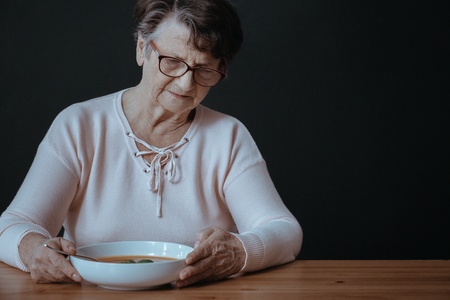
Many of us incorrectly assume that eating disorders are limited to teenagers, but the fact is that anyone, of any age, can suffer from them—including senior citizens. In fact, 78 percent of deaths due to anorexia occur among the elderly.
Here are some signs of an eating disorder among seniors. Be aware of them, so you can keep your parent, grandparent or friend safe and healthy:
- Dizziness and fainting
- Thinning hair and/or bluish skin
- Obsession over weight, calorie counting or restricting foods
- Cold intolerance
- Extreme thinness and/or sudden/rapid weight loss
- Rigid, ritualistic eating habits
So what causes anorexia in seniors? For some, it can be motivated by disordered body image, or be a relapse of an eating disorder experienced earlier in life.
For others, stressors stemming from life transitions, like the loss of a spouse or a move to an assisted living community, can spark disordered eating behaviors. Diet restriction, for people of all ages, can be a way of asserting control when life feels chaotic.
Still others experience loss of appetite as a result of medical issues. Poorly fitting dentures or prescription medications that diminish appetite can cause seniors to lose interest in food. While it may be natural to eat less as we age, eating too little leads to malnutrition and a host of related health issues.
BEK Medical has a wide variety of products to help seniors live in health and comfort. Browse our online selection or give us a call at 915-599-1129 to learn more.
